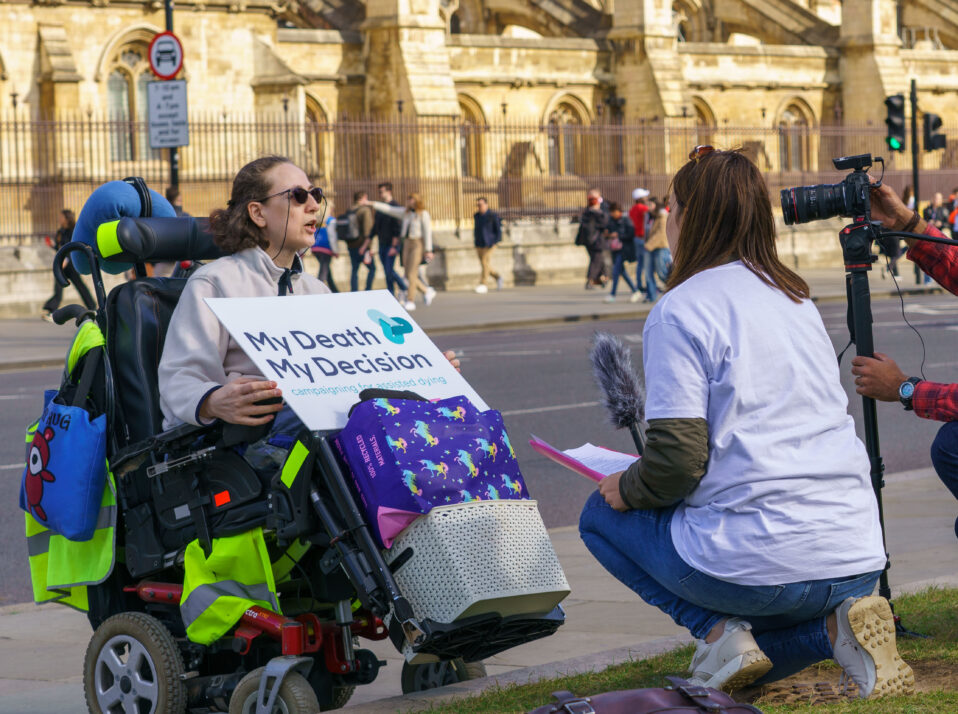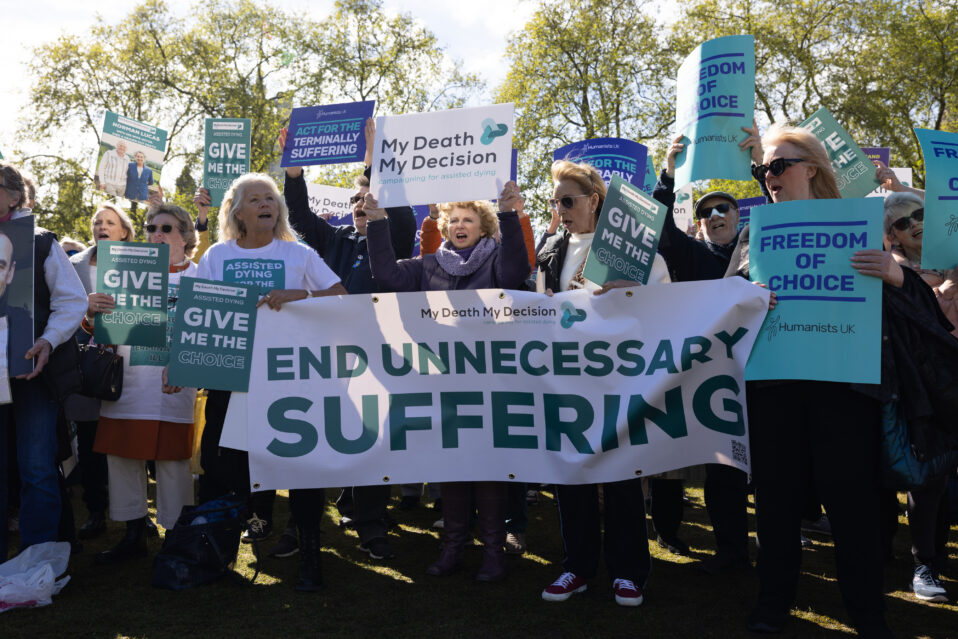
A final report detailing how assisted dying should be legalised has been published from Jersey’s citizens’ jury. The report follows on from an announcement earlier this year, in which 78% of jurors recommended the legalisation of assisted dying for adults who were terminally ill or suffering unbearably. My Death, My Decision has welcomed the publication for shining more light on the factors which led to the panel’s conclusions.
The full report revealed that:
- 69.6% of jurors thought assisted dying should be for adults with either a terminal illness or unbearable suffering
- 59.1% believed that psychiatric illnesses should not constitute unbearable suffering
- 65% believed that medical professionals should be able to assist or directly implement a patient’s wish to end their life.
The panel also recommended a series of robust safeguards including the provision of a cooling off period and oversight from a judicial body or special panel. These proposals mirror the legislation recently passed in Spain and broadly align with the ambit of My Death, My Decision’s campaign.
Earlier this year, 23 randomly selected islanders spent nearly 25 hours listening to experts both for and against assisted dying, and scrutinising their evidence. This included My Death, My Decision whose Director, Robert Ince, submitted evidence detailing how an individual’s personal faith need not prevent them from supporting a compassionate assisted dying law.
Participants were also given an opportunity to express key messages that they wanted the Council of Ministers to consider. Contributions ranged from urging lawmakers to recognise that assisted dying was about ‘compassion and letting people die with dignity’; highlighting that ‘assisted dying in Jersey is not just a humane route but one that allows people the peace of mind in the last stages of their life whether they choose to use it or not; and noting that ‘With adequate criteria and safeguards in place, combined with robust reporting and scrutiny framework post event, there is no reason to believe the option would be abused’.
Jersey’s States Assembly is expected to debate the findings in November or December.
Speaking on BBC Jersey’s breakfast programme, My Death, My Decision’s Chair Trevor Moore said:
‘This report reflects what has been established in many public opinion polls, carried out both by My Death, My Decision and indeed our colleagues at End of Life Choices Jersey. 78% of the citizens’ jury support the idea of an assisted dying law for the terminally ill and the intolerably suffering. Our independent poll, carried out by NatCen, and the one carried out by End of Life Choice’s Jersey in fact had higher percentages than that… There has been a sea change in public opinion as well as in medical opinion too.’
‘Since 2015, certainly in Westminster where a Bill was last debated, a great deal has happened. Public opinion in support has doubled. Back then it was around 40% and now it is closer to 85-95%. But also, there is now a better understanding from countries around the world that have assisted dying laws – they have considerable experience which we can look at… My Death, My Decision is looking for a public inquiry at Westminster because we think that the best way for politicians to make a decision is to hear and scrutinise the evidence. Particularly from places where assisted dying laws are already in place.’
Notes:
For any more information or comment please contact My Death, My Decision’s Campaigns and Communications Manager at campaigns@mydeath-mydecision.org.uk.
Read the Full Citizens’ Jury’s report.
Read more about My Death, My Decision’s campaign for an inclusive change in the law: https://www.mydeath-mydecision.org.uk/
Jersey’s Citizens’ Jury was announced in February 2020 by Health Minister Deputy Richard Renouf. It followed an e-petition in 2018, backed by 1,861 islanders, calling for the States Assembly to amend Jersey’s law on assisted dying. The panel convened over a ten week period and heard from a range of experts, including My Death, My Decision. The question it considered was ‘Should assisted dying be permitted in Jersey, and if so, under what circumstances?’
The sessions were organised by the public participation charity Involve. They were commissioned to design and run the Jury including all of the participant liaison.
My Death, My Decision is a grassroots non-profit organisation that campaigns for a balanced and compassionate approach to assisted dying in England and Wales. As a growing movement, we are at the forefront of social change: nearly 90% of the public now favours a change in the law to allow adults of sound mind, who are either terminally ill or facing incurable suffering, the option of a peaceful, painless, and dignified death.








Recent Comments